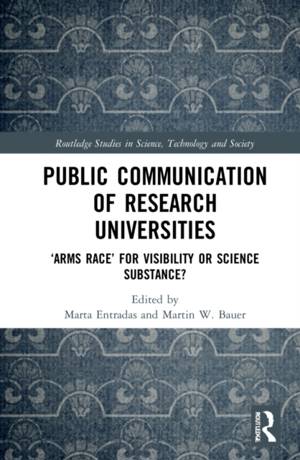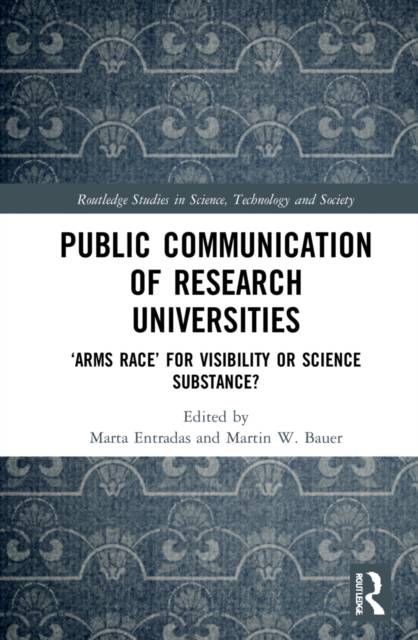
- Afhalen na 1 uur in een winkel met voorraad
- Gratis thuislevering in België
- Ruim aanbod met 7 miljoen producten
- Afhalen na 1 uur in een winkel met voorraad
- Gratis thuislevering in België
- Ruim aanbod met 7 miljoen producten
Public Communication of Research Universities
'Arms Race' for Visibility or Science Substance?
Omschrijving
This book analyses communication of university research institutes, with a focus on science communication. Advancing the 'decentralisation hypothesis', it asserts that communication structures are increasingly built also at 'subordinate unit' levels of research universities.
The book presents a cross-country systematic comparison of institutes' communication activities showing ongoing transformations in their communication capabilities and practices. It considers a potential 'arms race' in activities, professionalisation, motivations, and evaluation. Based on empirical evidence from an international study carried out in various countries across Europe, the Americas, and Asia, the book examines the possibilities for civic science communication in this new context.
It will be of interest to scholars and students of Communication Studies, STS, and Science Communication as well as to those taking or leading courses in the fields of Sociology, Public Relations, Marketing, Environmental and Risk Communication, Innovation Studies, and Social Psychology. It is an essential resource for funders, practitioners, teachers, and students dealing with science communication and the position of science in society.
Specificaties
Betrokkenen
- Uitgeverij:
Inhoud
- Aantal bladzijden:
- 296
- Taal:
- Engels
- Reeks:
Eigenschappen
- Productcode (EAN):
- 9780367461355
- Verschijningsdatum:
- 6/05/2022
- Uitvoering:
- Hardcover
- Formaat:
- Genaaid
- Afmetingen:
- 156 mm x 234 mm
- Gewicht:
- 625 g

Alleen bij Standaard Boekhandel
Beoordelingen
We publiceren alleen reviews die voldoen aan de voorwaarden voor reviews. Bekijk onze voorwaarden voor reviews.











